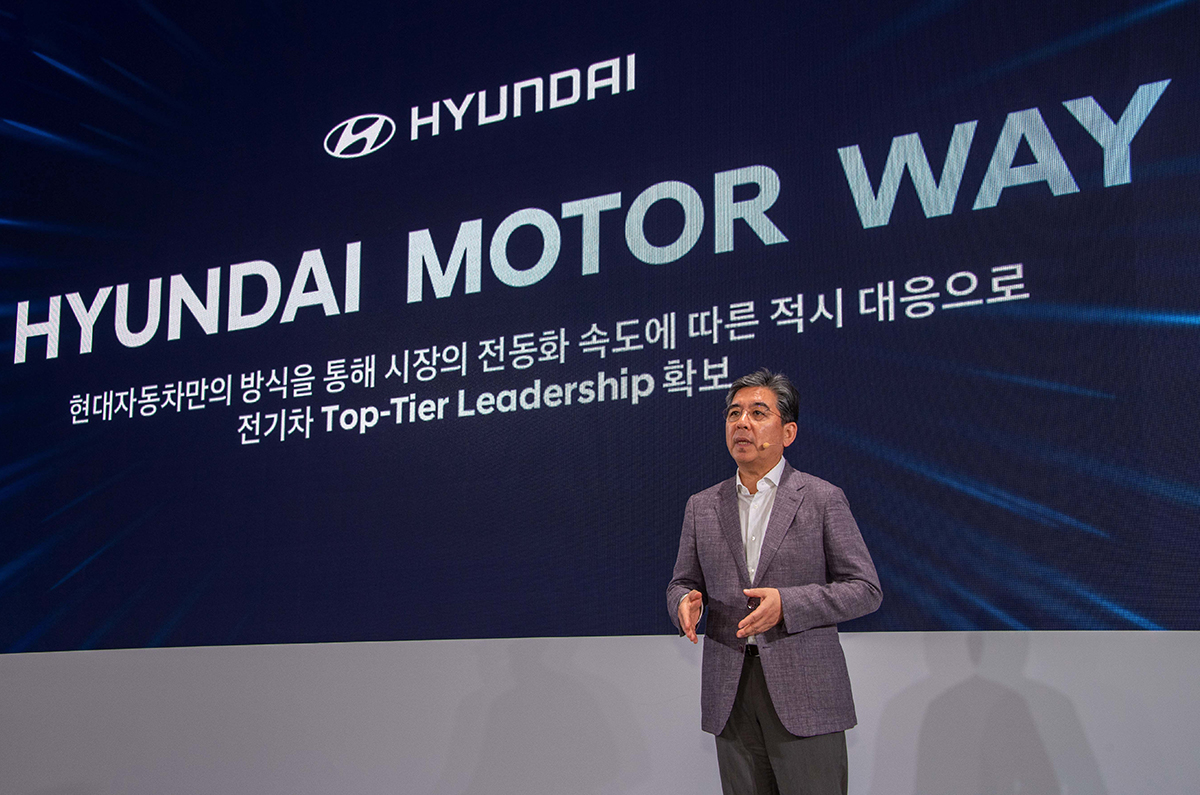Hyundai plans to invest KRW 109.4 trillion (roughly Rs 6,93,211 crore) towards its electrification plans in the next 10 years.
Hyundai has announced new details regarding its short-term and long-term electrification plans at its 2023 CEO Investor Day. Hyundai plans to invest KRW 109.4 trillion (roughly Rs 6,93,211 crore) in the next 10 years in its transition to become a “smart mobility solution provider”.
- Hyundai’s new IMA platform will allow EVs to cater to more segments
- It is also working on developing solid state batteries
- Hyundai plans to sell 2 million EVs annually by 2030 globally
Hyundai’s new electrification plans
Out of the aforementioned amount, Hyundai plans to invest KRW 35.8 trillion (roughly Rs 2,26,852 crore) towards electrification. This includes an investment of KRW 9.5 trillion (roughly Rs 60,198 crore) towards battery development and the remainder for developing next-gen modular EV architecture and increasing production capacity for EVs.
Hyundai also announced that it has set a goal of selling two million EVs annually by 2030 globally. It also has plans to add more EV production lines at its existing plants in India, the US, South Korea and the Czech Republic as and when market demand increases.
Hyundai’s new EV architecture
The South Korean manufacturer will develop a new EV platform, based on the new Integrated Modular Architecture (IMA), that will replace the existing Electric-Global Modular Platform (E-GMP). By 2030, Hyundai will introduce 13 new EV models under the Hyundai, Kia and Genesis brands.
With the IMA, Hyundai plans to have more standardised modules and parts to further expand economies of scale and reduce EV development costs. Hyundai states that the IMA platform will allow parts sharing across different vehicle segments and body styles. With the E-GMP, Hyundai is only producing mid-size SUVs and the IMA will help it produce small to large EV SUVs, pickup trucks as well as flagship models for Genesis.
Hyundai’s new batteries
Hyundai also stated that it has plans to use a variety of batteries that include the new versions of Nickel Manganese Cobalt (NMC) and Lithium Iron Phosphate (LFP) batteries with the IMA platform. Alongside, Hyundai says it will also explore different form factors to increase the versatility of battery packs. It also intends to use an AI-based battery management system that will allow real-time battery management and diagnosis of battery conditions.
For the long term, Hyundai is planning on partnering with firms like Solid Power and SES that specialise in solid-state and lithium-metal batteries, respectively.
Hyundai also mentioned that it will announce its plans for hydrogen at the Consumer Electronics Show (CES 2024).
Hyundai EVs in India
Currently, Hyundai sells the Ioniq 5 EV in India which is priced at Rs 45.95 lakh (ex-showroom, India). Kia, also under the Hyundai umbrella, sells the EV6 here, which is priced between Rs 60.95 lakh-65.95 lakh (ex-showroom, India).
Also see:


